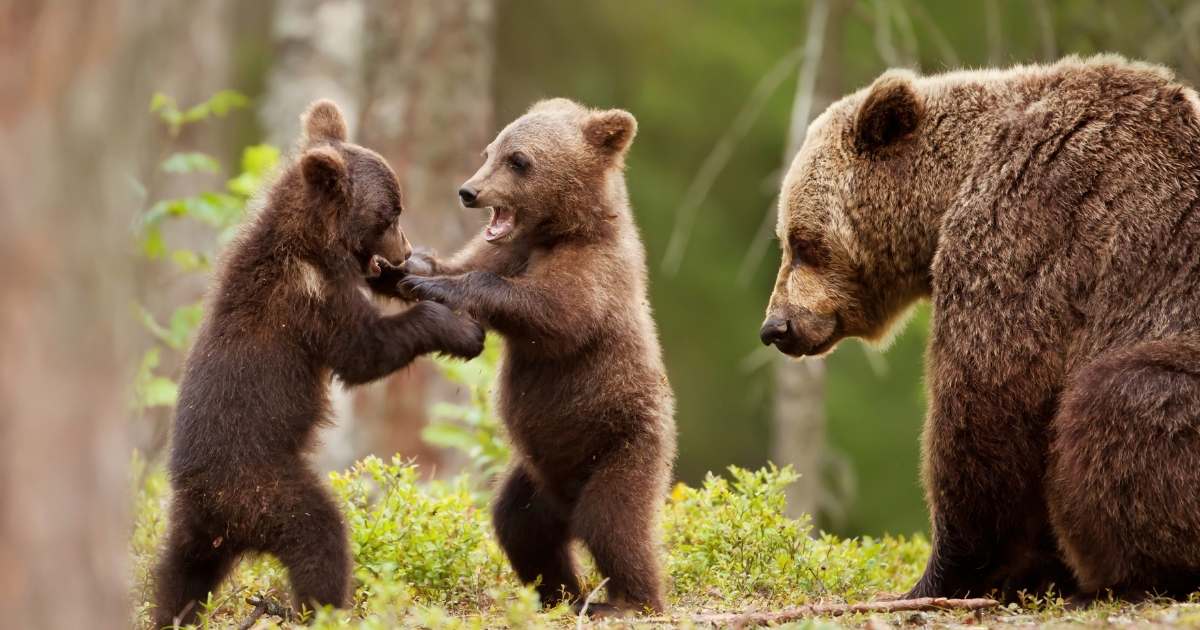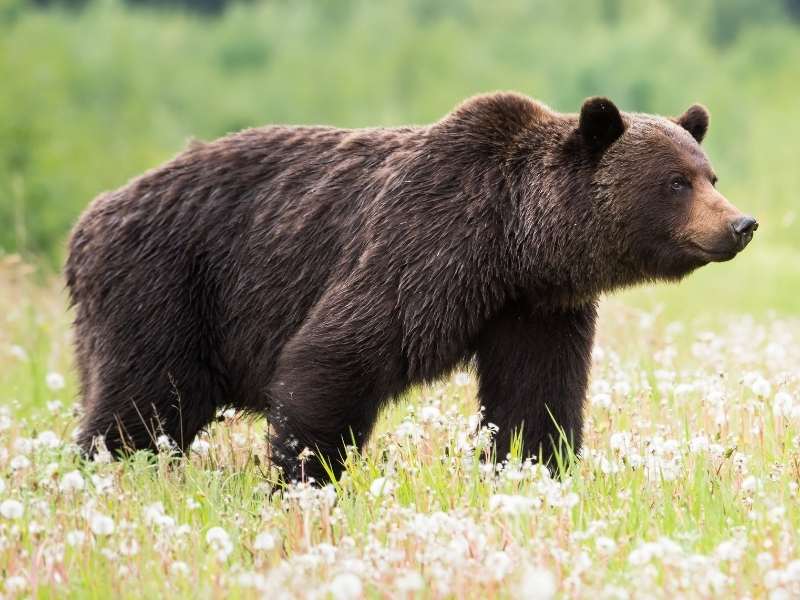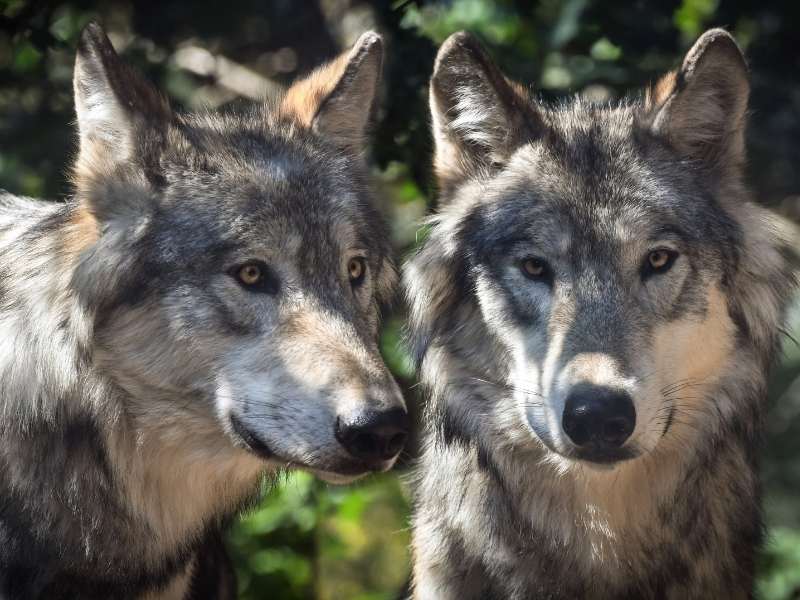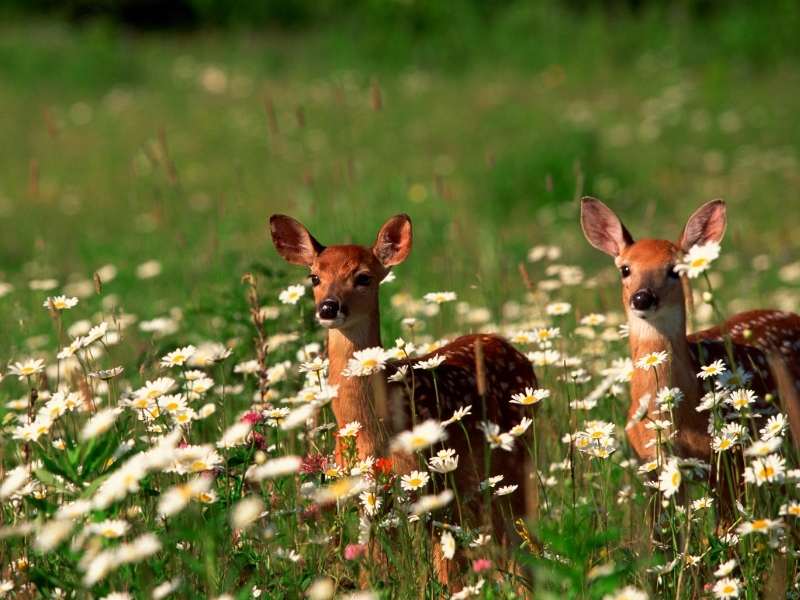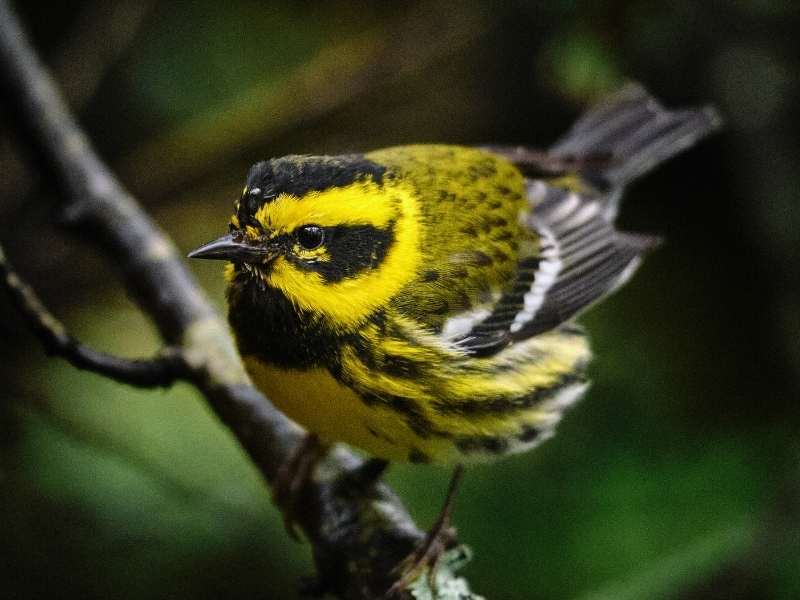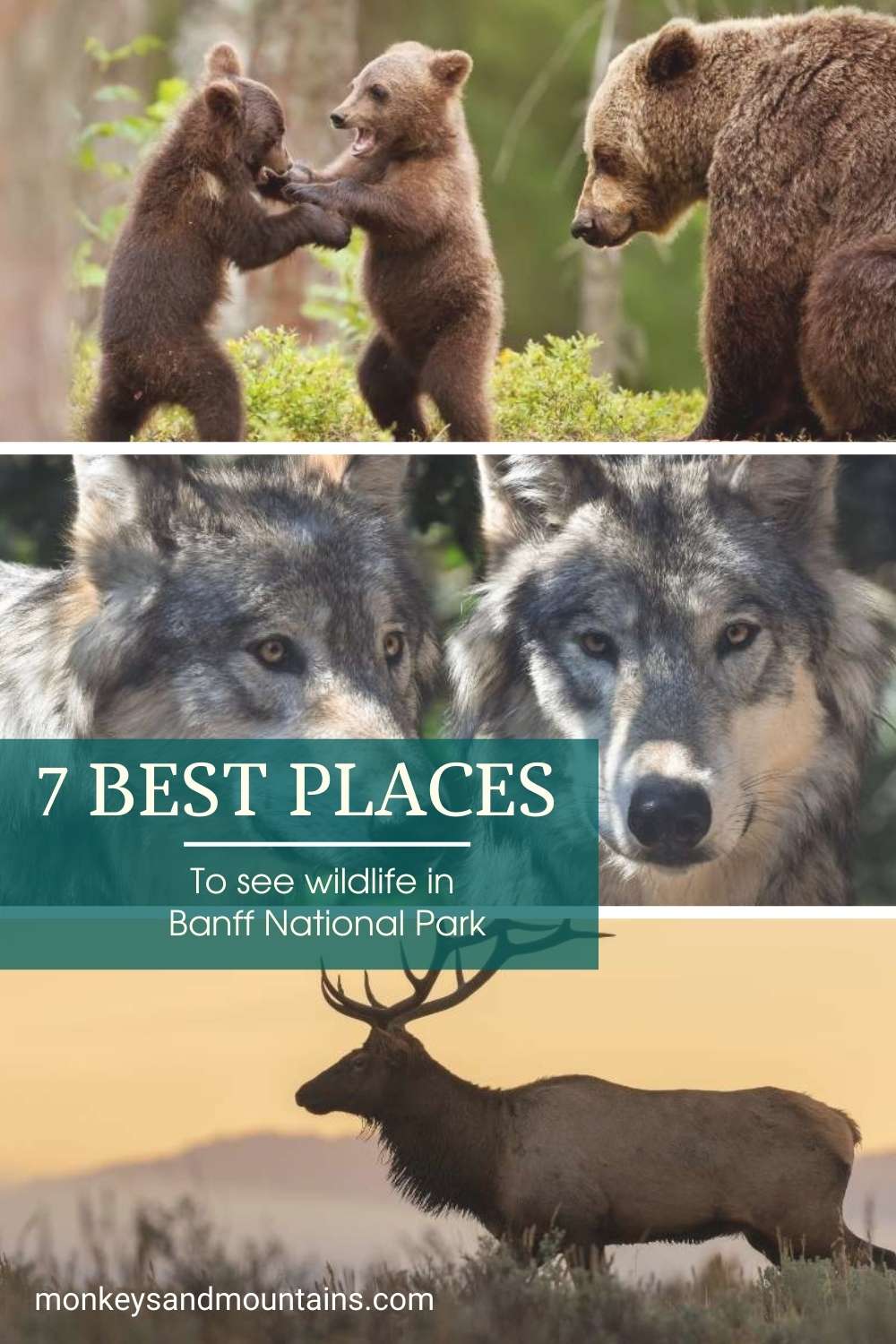The best places to see wildlife in Banff National Park and tips to increase your chances of spotting a bear, moose, bighorn sheep, elk or deer while staying safe.
Table of Contents
Tourists and locals alike flock to Banff National Park in Alberta, Canada for the impressive peaks, crystal blue lakes and of course for the wildlife.
At the end of any trip, ask any tourist how their time in Banff was and almost always the first thing they’ll comment on is the wildlife or lack thereof.
As in “It was great, we saw a grizzly bear.” or “All we saw was a couple of deer.”
Obviously, this is very disappointing if you’ve come expecting to see wildlife.
I’ve hiked a lot in Banff and the surrounding area, and more often than not I don’t see wildlife.
I even volunteered for a project tracking grizzly bears so in known favourite spots. Guess how many I saw? Zero.
But when I’m specifically looking for wildlife, there are certain places that I’ve found that I’m very likely to see them. I want you to have the same amazing experience.
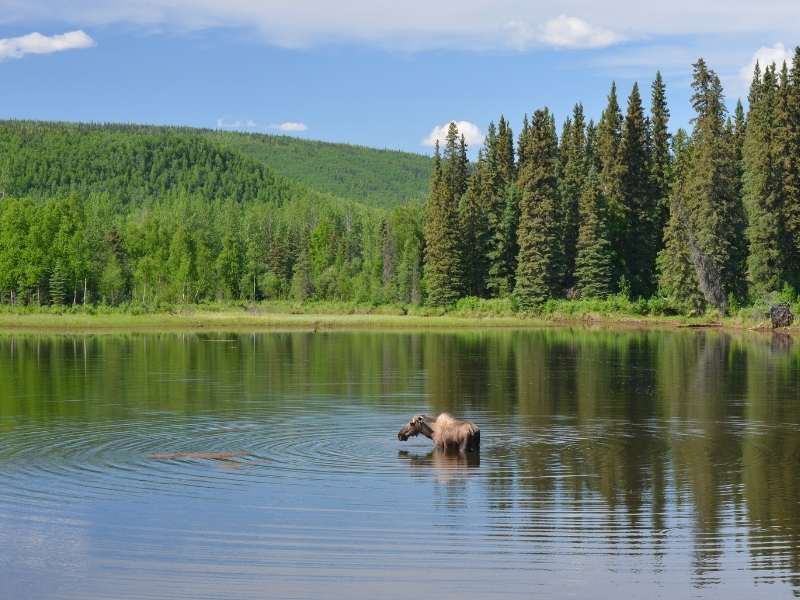
What Kind of Wildlife Can I See in Banff?
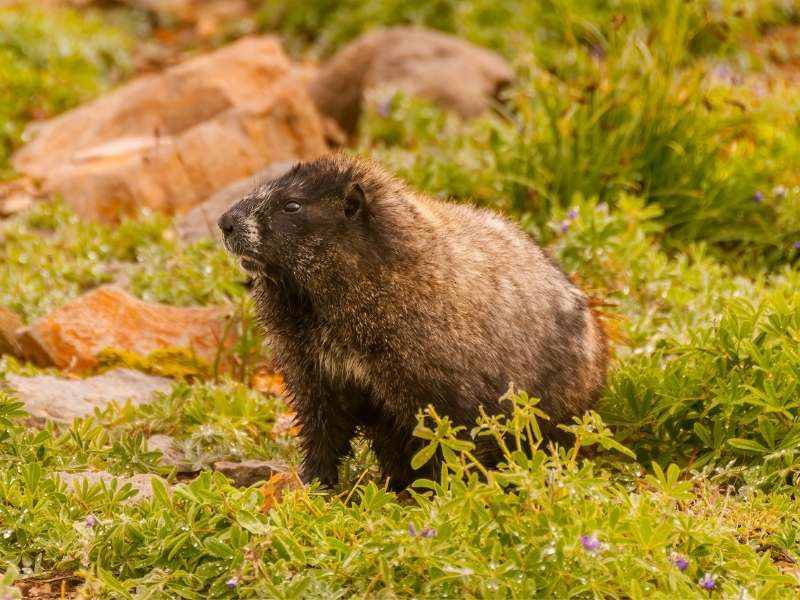
You will have the opportunity to see large wildlife such as elk, bighorn sheep, deer, moose, both black and grizzly bears, and cougars (very rarely).
If you’re looking for smaller wildlife keep your eye out for hoary marmots, Columbian Ground Squirrel, Red Squirrel, beaver, Pika and more.
If you’re into bird watching, you’ll be happy to know there are 260 species of birds.
You can see the complete list of wildlife in Banff here.
Recommended Reading: Wildlife Books That Animal Lovers Will Enjoy
That’s why I’ve listed the 7 best places to spot wildlife in Banff:
Related Reading: My Favourite Adventures in the Canadian Rocky Mountains
1) Go on an Evening Wildlife Safari Tour From Banff
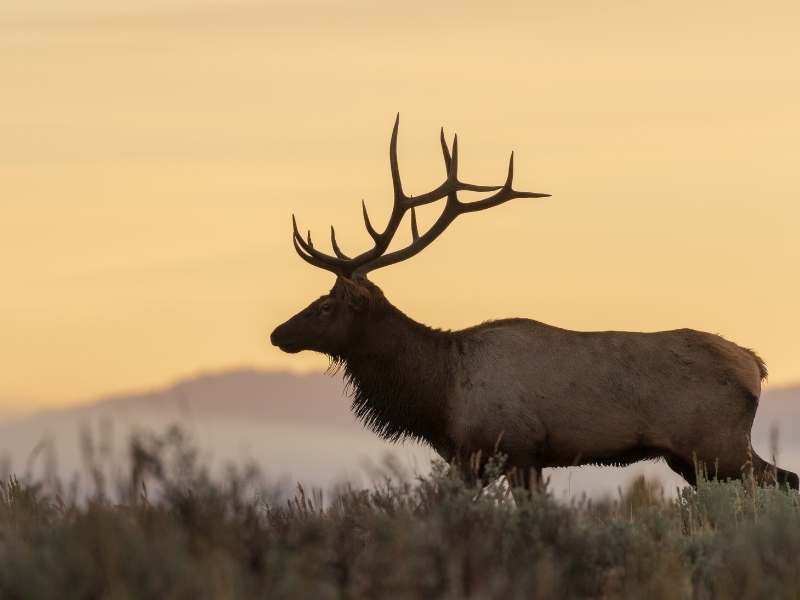
If you want to have the best chances of seeing wildlife, go on a guided tour with experts whose job it is to know where the wildlife is hanging out. On this tour, they see wildlife on an incredible 95% of their tours.
Early morning and dusk are when you’re most likely to see wildlife and on this tour, you’ll get to sleep in as it takes place at dusk and takes you to all the wildlife “hotspots.”
Visitors are likely to see deer and elk and perhaps even a coyote or a bear. Book your tour here. Note: it often sells out, so don’t delay your booking.
Related Reading: 12 Best Winter Hikes in Banff National Park: For Your Winter Bucket List
2) Lake Louise Gondola Tour for Grizzly Bear Sightings
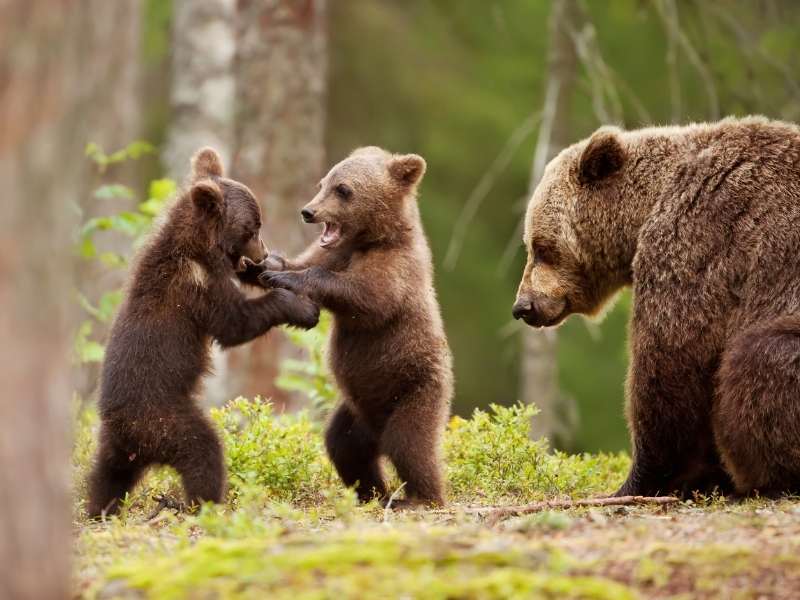
At the top of Lake Louise Gondola, is prime grizzly bear habitat. The area is a ski hill in winter so the open area also makes sightings easier.
It is a prime place to see wildlife in Banff. Besides grizzly bears, visitors may also see black bears, cougars, lynx, mountain goats, wolves, elk, mule & whitetail deer, moose, bighorn sheep, wolverines, and birds.
At the top of the gondola is the Wildlife Interpretation Centre where various wildlife interpretive programs are offered at no charge.
You are free to explore and can venture off on a number of hikes ranging from easy walks to challenging peaks, but groups of four or more are recommended due to the high concentration of grizzly bears.
Visitors can also sign up for the Trail of the Great Bear, a 45-minute guided hike about bears and bear safety for only $5. Reservations are based on a first come first serve basis and are offered three times a day.
The gondola ride is $26.75 for adults and $13.40 for children. You can also add lunch for $6 more, which is a steal for a lunch in Banff. For more information see Lake Louise Gondola.
3) Sulphur Mountain for Bighorn Sheep
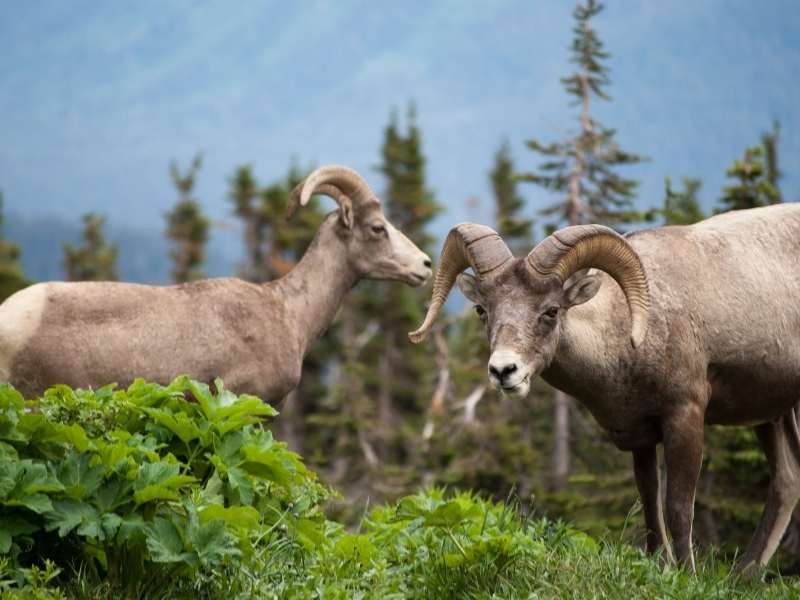
Sulphur Mountain is better known for its hot springs (which are great) but I recommend combining it either a trip to the top of the mountain. You can either take the gondola or hike to the top.
You have a good chance of being welcomed by bighorn sheep, chipmunks and grey jays. If you’re not lucky enough to have a welcoming community of wildlife, you’ll still be rewarded with stunning views from the top.
Want to extend your adventure? Then check out this Highline trek that starts from Sulphur Mountain and offers 360 panoramic views over Banff. It’s not well known, and the rugged terrain increases your chances of spotting a mountain goat, which you’ll only find at higher elevations.
Once you’ve soaked in the views of Sulphur Mountain head back down the mountain to indulge in the hot springs. grey jays.
Related Reading: Grizzly Bear Viewing in Lake Louise
4) Vermilion Lakes
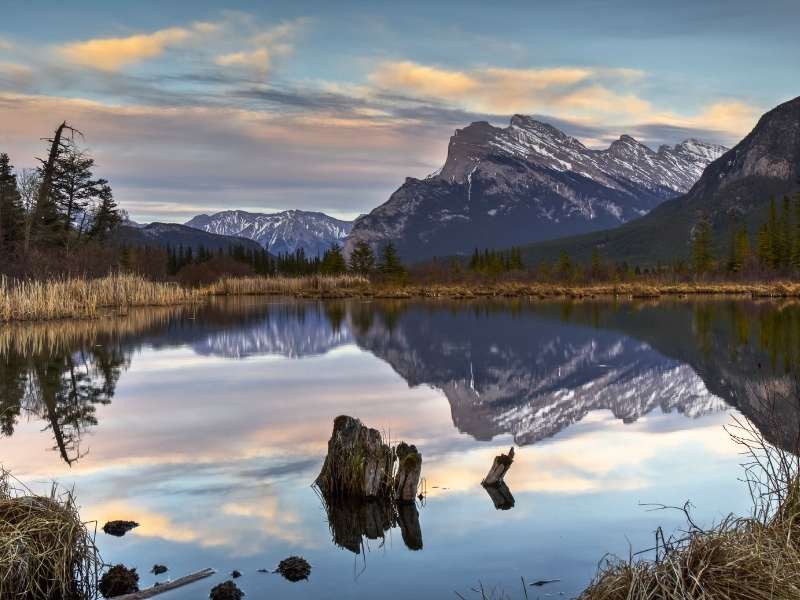
Vermilion Lakes is a popular area with many locals and tourists and it’s no wonder. The lakes are beautiful, especially so when they mirror Mount Rundle.
You will find a lot of wildlife here, everything from mink, otter, elk, bighorn sheep and grizzlies. If you’re lucky you might even spot an elusive wolf.
It’s also a great spot for bird watching.
Related Reading: The Best Hiking Journal and 7 Reasons You Should Keep One
5) Wildlife Overpasses in Banff
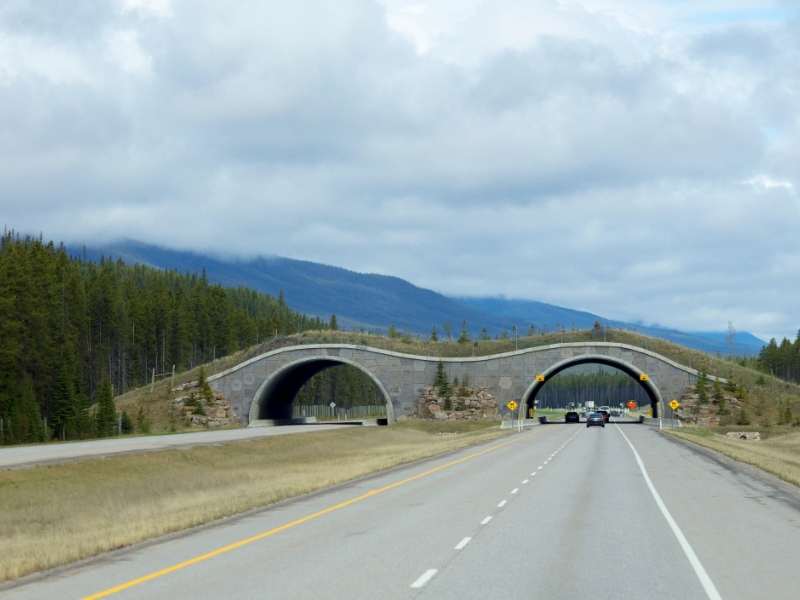
While driving from Banff to Yoho National Park there are six wildlife overpasses and 38 wildlife underpasses. These are to help keep wildlife from getting hit by cars.
This is the highest concentration of wildlife crossing structures for any single stretch of highway anywhere in the world, which I think is incredible!
Admittedly, you’re not likely to see any wildlife on the underpasses. But on the overpasses, I’ve seen deer and elk on several occasions. You can find out more about these passes on the official site.
6) The Icefields Parkway A Great Road To See Wildlife In Banff
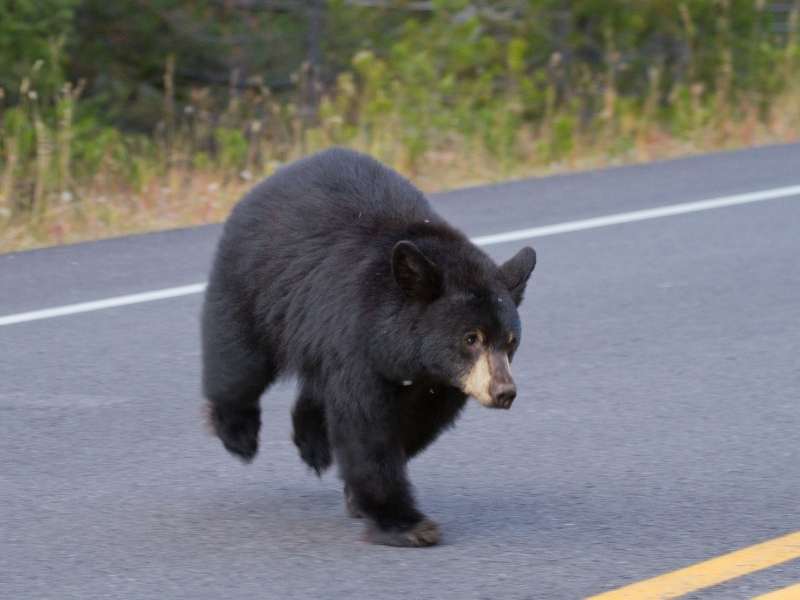
The Icefields Parkway or Highway 93N is a road that runs through Banff National Park and Jasper National Park. The road is known for its wildlife.
It’s known as the most scenic drive in the world, and there are numerous stops of interest along the way. S, you’re in for a treat regardless of whether you see wildlife.
It’s ~ a 3-hour drive without stops from Lake Housie to Jasper. Please, watch your speed, as this area isn’t fenced and wildlife can pop out of the forest and onto the road in a flash.
And if you see one herd animal like a deer or an elk, be aware there are probably a lot more right behind it.
If you don’t want to drive, then check out this full day tour of Lake Louise and the Icefields Parkway. That way, you won’t have to concentrate on driving and can put your full attention on wildlife spotting.
You’ll also stop at picturesque spots like Bow Falls and Moraine Lake, so you’ll have a great day, even if you don’t spot wildlife.
If you’re looking for a one-way trip from Banff to Jasper, then check this out.
Related Reading: Snowshoeing in Canada: The Top Trails in the Rockies
And while not in Banff, but 139km away in Golden, these two spots to see wildlife deserve a mention as well
7) Grizzly Bear Tour
If you love bears, you’ll love this full-day tour from Banff to Yoho National Park. The highlights include taking a gondola ride to Canada’s highest restaurant. Afterwards, you’ll then take a chairlift to visit Boo at the Grizzly Bear Refuge.
This is the world’s largest enclosed and protected grizzly bear habitat.
Besides seeing a bear in the semi-wild, you’ll also have a professional guide so will soooooo much about bears.
8) Northern Lights Wildlife Wolf Centre for Grey Wolves
The Northern Lights Wildlife Wolf Centre is located near Golden, British Columbia 140km west of the town of Banff. Here visitors can enjoy an interpretive talk about grey wolves and see grey wolves through a fence.
Admission is $12 for adults and $6 for children. For photographers and those that want to hike with the wolves this option is also available, but it doesn’t come cheap – a 1.5-hour hike is $295 for two people.
If you are going alone, the price is still $295. For more information see: Northern Lights Wildlife Wolf Centre
Related Reading: Best Hiking Backpacks: Our Recommendations for Every Budget
7) Grizzly Bear Tour
If you love bears, you’ll love this full-day tour from Banff to Yoho National Park. The highlights include taking a gondola ride to Canada’s highest restaurant. Afterwards, you’ll then take a chairlift to visit Boo at the Grizzly Bear Refuge, the world’s largest enclosed and protected grizzly bear habitat.
Besides seeing a bear in the semi-wild, you’ll also have a professional guide so will soooooo much about bears.
Related Reading: 9 Ways to Experience the Natural Beauty of Vancouver
7 Tips for Seeing Wildlife in Banff
-
- The best time of year to see wildlife in Banff is between June and September as the weather is good. If you are visiting outside of those months then make sure to check the weather before you go, it can snow at any time which makes the road difficult to navigate.
-
- The best time of day to see wildlife is at dawn and dusk when wildlife is most active. But you can see wildlife at any time so always keep your eyes and ears open. Also, notice any distinct smells. I swear grizzly bears smell of stale cheap men’s cologne and have smelled them before I’ve seen them numerous times while hiking.
-
- Look for signs that wildlife was recently in the area. This could include scat (poop), tracks if there is snow or it’s muddy. Look for fresh scratch marks on trees that could indicate a bear was recently in the area. I think it’s a lot of fun playing detective and it also absorbs you so much more into your surroundings.
-
- The best places to see wildlife are often lakes, where animals come to drink. I.e. Bourgeau Lake is a favourite spot for bears. If you’re looking to spot a moose, then look for wetlands, their preferred habitat. A good place is Vermilion Wetlands, which has a high diversity of wildlife.
-
- Never feed wildlife. There’s a saying in Banff a fed bear is a dead bear, so please don’t feed the wildlife. Not only that, but it’s illegal and you may face a fine up to $25,000.
-
-
- Don’t contribute to bear-jams. You’ve heard of traffic jams, of course, well a bear jam is caused because there’s a bear by the highway and everyone slows down to take pictures or to observe it, causing a traffic jam. Slow down but please don’t stop as it endangers bot the bear and other drivers.
- Never get too close to wildlife. It’s amazing how many people risk their lives by getting out of their cars to take a photo of wildlife. Bears might look cuddly, but they also have huge claws and teeth. But it’s not just bears. Moose have powerful legs for kicking and could seriously injure or kill you. They can be extremely aggressive when they have calves that they’re trying to protect.
-
Related Reading:Hiking for Beginners: A Complete Guide
Best Places to See Bears in Banff
Grizzly bears love dandelions so look for them along park highways. Always stay in your car!
Best Places to See Bighorn Sheep in Banff
You have a good chance of spotting a bighorn sheep. They’re the second most common ungulate (hooved animal in the park after elk). Their common hangouts include:
- Lake Minnewanka
- on the Mount Norquay Road
- at the top of the Sulphur Mountain (either hike or take the gondola)
Best Places for Bird-Watching in Banff
The best time of time for bird watching is spring to early summer. You’ll want to head out early, i.e. an hour before sunset as most of the action only happens until 9 or 10 am.
For bird watching, check out:
- the Banff Townsite
- the Cave and Basin marsh
- Vermilion Lakes
See the official site for further information.
Where to Stay in Banff
Banff Inn offers simple yet charming accommodation. The inn also has a hot tub, sauna, and steam room that guests are welcome to use. It is centrally located and there is a pizzeria located at the premises that serve other foods as well.
The Moose Hotel and Suites has a beautiful wooden structure that is offset by the magnificent mountains behind it. Each of the rooms has a balcony where you can sit and enjoy the views in summer.
The spa center offers a heated outdoor pool and an indoor pool as well as 10 treatment rooms where you can treat yourself to a massage.
How to Get from Calgary to Banff National Park
This post tells you everything you how to get to Banff from Calgary.
Other National and Provincial Parks to Combine with Your Visit to Banff Located in Alberta/British Columbia
- Things to Do in Jasper National Park
- Elk Island National Park (great place to see Bison!)
- Things to Do in Yoho National Park
- Castle Provincial Park (another great place to see wildlife)
- Drumheller and the Canadian Badlands (the dinosaur capital of the world )
- Writing-on-Stone Provincial Park (focus on sandstone and Native American culture)
- Waterton National Park (I haven’t written about it but I LOVE it and grew up nearb. It’s fantastic for wildlife).
